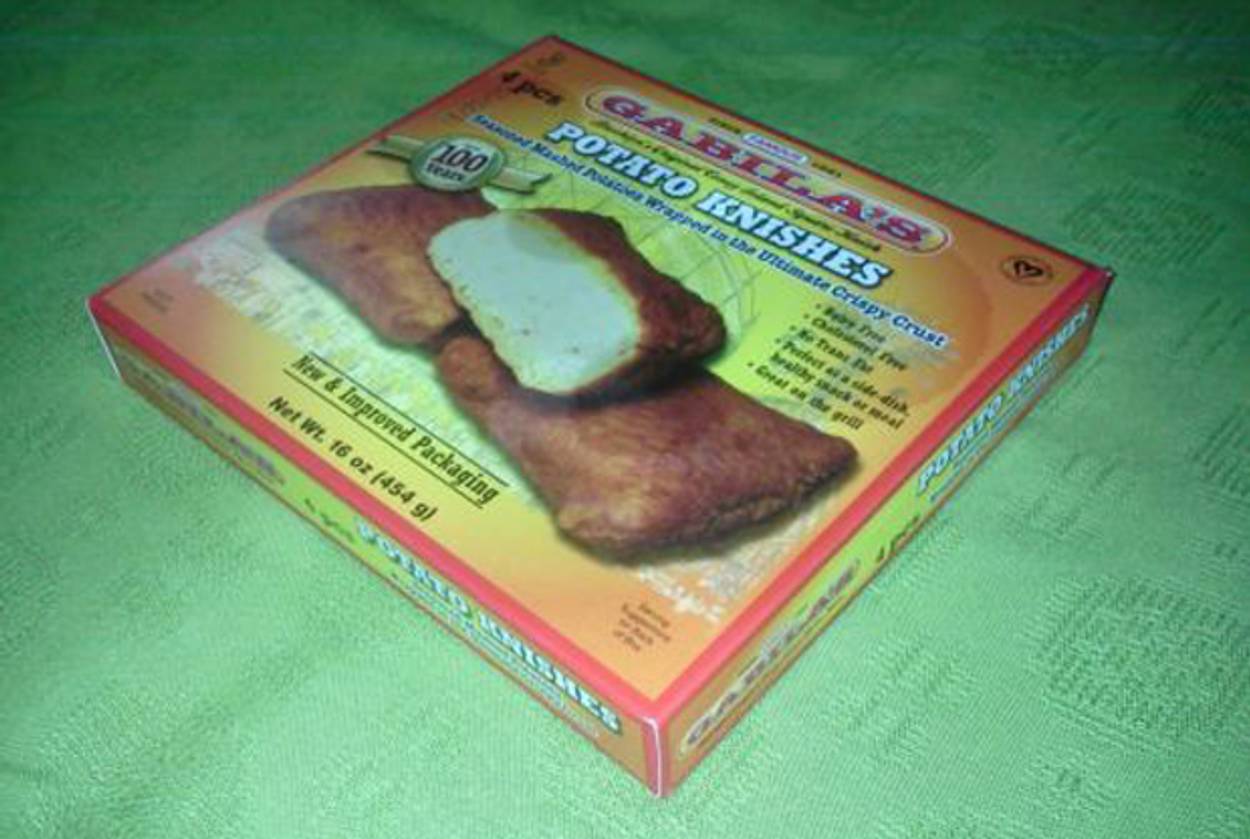After Factory Fire, Knishes for Sale on eBay
Opening bid for three boxes of Gabila’s knishes is 99 cents, shipping costs $45




After last month’s fire at Gabila’s, the Copiague, N.Y. knish factory responsible for producing 15 million fried potato pies annually, the company announced they wouldn’t be back in business until the middle of December. Still, there may be hope yet for those looking to get in the knish game in time for Thanksgivukkah, that monstrous mega-holiday later this month.
Your potato-filled fate is in the hands of Knoxville, T.N., resident Robin Goldberg, who has put three boxes of four frozen Gabila’s knishes each up for auction on eBay. According to the item listing, “Offer includes 3 boxes of knishes (each box contains 4 pieces) = 12 KNISHES (maybe even enough to share).”
The opening bid is $.99, though the you’ll have to fork over a hefty $45 for shipping (Goldberg plans to donate a portion of the proceeds to charity). Luckily the knishes don’t expire until mid-2014.
Earlier this month Tablet contributor and knish expert Laura Silver traced the history of Gabila’s, a family business which started in 1921. Silver also pointed out that the recent factory fire and resulting production woes are hardly the first setbacks in the resilient knish’s 5,000 year-plus history.
Gabila’s founder Elias Gabay, a Sephardic shoemaker, arrived in New York from Niš—then Yugoslavia, now Serbia—in 1919. Two years later, he and his wife, Bella, opened a basement eatery on Forsyth Street on the Lower East Side. Mr. Gabay sold knishes from a pushcart on Delancey Street. In 1925, he set his sights on citizenship and was turned down for “lack of knowledge.” On the second try, he told the judge he was a “a king” [of knishes, as stated on his business card] and became an American. Soon after he moved his factory to Williamsburg, Brooklyn. And in 2006, his descendants sold the knish plant and exiled themselves to Copiage.
Bidding on the frozen knishes ends Sunday at 11:30 a.m. PST, so get clicking.
Stephanie Butnick is chief strategy officer of Tablet Magazine, co-founder of Tablet Studios, and a host of the Unorthodox podcast.